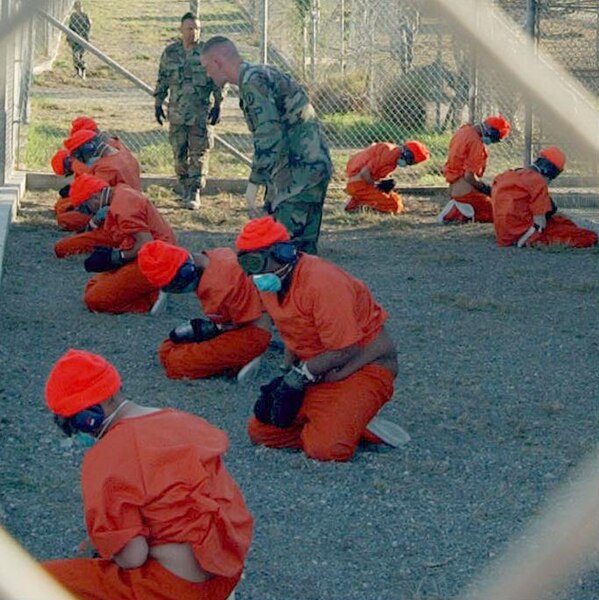Freedom for Cuba’s Political Prisoners

HAVANA TIMES, May 12 — After the release of all peaceful dissidents and several of the violent ones, the bulk of political prisoners remaining in Cuba are those that the United States continues to hold at its military base in Guantanamo, on the east side of the island.
Wikileaks, with magician-like artistry, continues pulling secret cables from its hat, with the latest ones revealing the conditions of the detainees in the prison that Obama promised to close within a year, but which — 30 months later — continues to operate.
In Cuba it has always been a problem to write about imprisoned opponents. The dissidents correct us saying that they’re in fact prisoners of conscience, while the government assures us that these are counter-revolutionary criminals.
But what do you call those held at Guantanamo? They’re not “enemy combatants,” many have never fired a shot. Nor are they political prisoners since some were never politically active, and even less prisoners of conscience, though no one has bothered about finding out how they think.
Secret cables from the Pentagon — revealed by Wikileaks and published by the Spanish newspaper El País — confirm that 60 percent of those arrested were taken to Guantanamo without conclusive proof held against them.
To have ended up as a prisoner at that base, it was enough to have been considered a probable threat to the USA, though some were imprisoned even when this was considered unlikely. It seems that when they put something like that into one’s head, there’s no way of escaping.
That would explain why they took an 89 year-old old man suffering from dementia and depression to Guantanamo as an enemy combatant. Wikileaks revealed to us why he was considered a threat to US national security: His sole crime was that of having a satellite a telephone in his home.
It’s paradoxical that Washington considers these devices so dangerous but was indignant when Cuba convicted American contractor Alain Gross of smuggling such communications equipment onto the island.
Of the more than 700 prisoners who have passed through Guantanamo, only seven were tried. It’s difficult to present charges before a court against people who were apprehended for having a cousin in the Jihad or who were merely traveling along routes used by the Taliban.
As the word “torture” appears in 800 documents, it’s apparently a common practice in interrogations. Paradoxically, when they finally located Bin Laden — the man who managed the most information concerning al-Qaeda — they shot him twice and tossed his body into the sea.
They could have captured him and interrogated him – the White House confirmed that he was unarmed. Yet they say that he resisted defenselessly and that the best-trained commandos from the United States had no alternative but to shoot him in the heart and in an eye.
A few days ago the Cuban dissident Angel Enrique Fernandez began a hunger strike demanding Alan Gross’s freedom. He explained that this was “because we are defenders of human rights; it doesn’t matter what country one is from if they are unjustly imprisoned in Cuba.”
He added that the sole crime of the American was bringing in cell phones. Thinking like this, the Cuban opponents could well have included among their demands the freedom of the old Afghan man and several of his comrades.
After all, they are being unjustly detained in Cuba for political reasons, they have not been tried and it’s suspected that they have been tortured. It’s true that they are not Cuban, but it doesn’t matter to the dissidents what country someone is from if they’re being unjustly imprisoned.
Operationally this would be no problem. The demands could be made to the American diplomats and their demonstrations could alternate: on some Sundays on 5th Avenue before the Cuban authorities and on others on the Malecon in front of the US Interest Section (the unofficial US embassy on the island).
The idea might seem strange but that doesn’t make it less just. To engage in a campaign in support of the freedom of human beings detained for almost a decade without cause or trial should be a no-brainer issue for a human rights activist.
This would have double benefit for the human rights movement. It would allow them to continue their activities after Raul Castro frees the last political prisoner and they would earn credibility by refuting those who accuse them of being “mercenaries of the empire.”
—–
An authorized translation by Havana Times (from the Spanish original) published by BBC Mundo.




